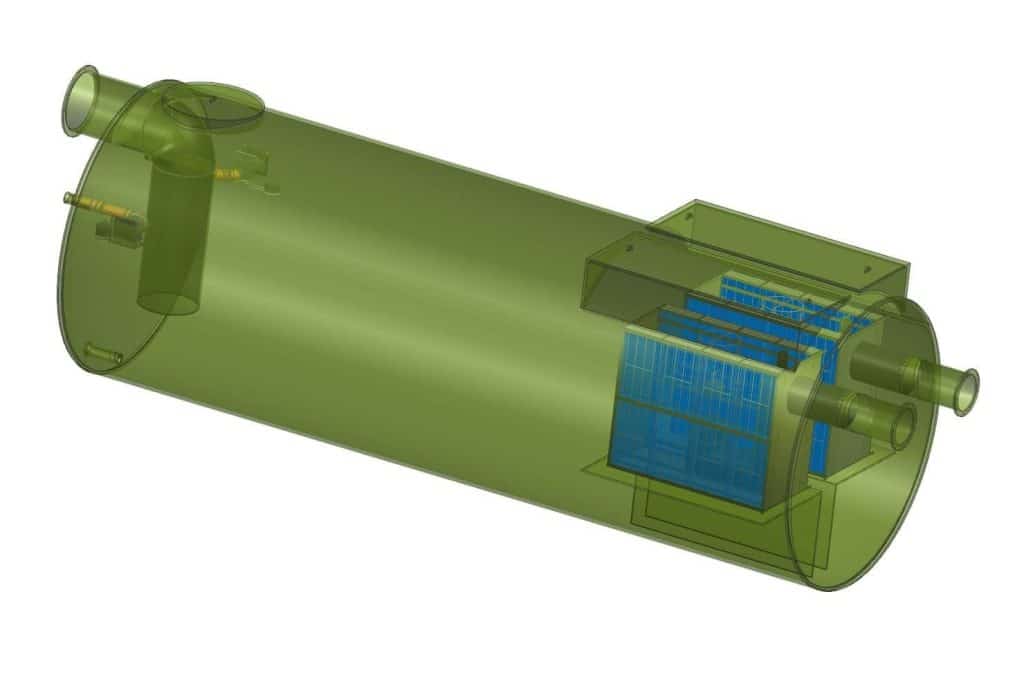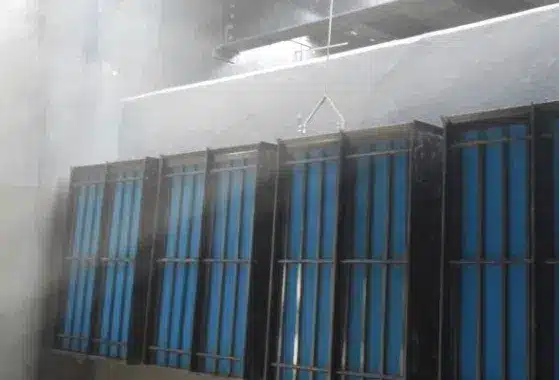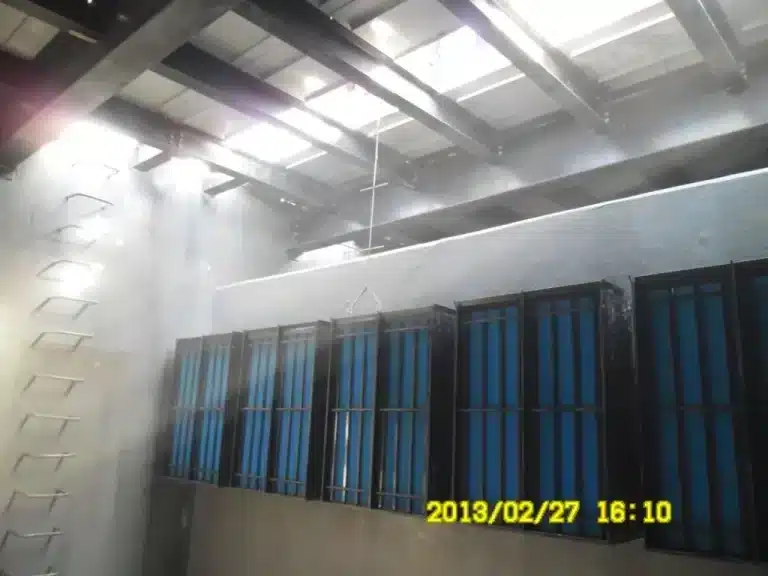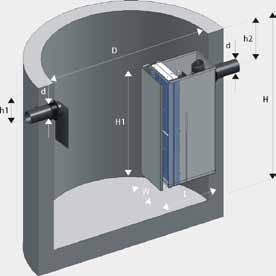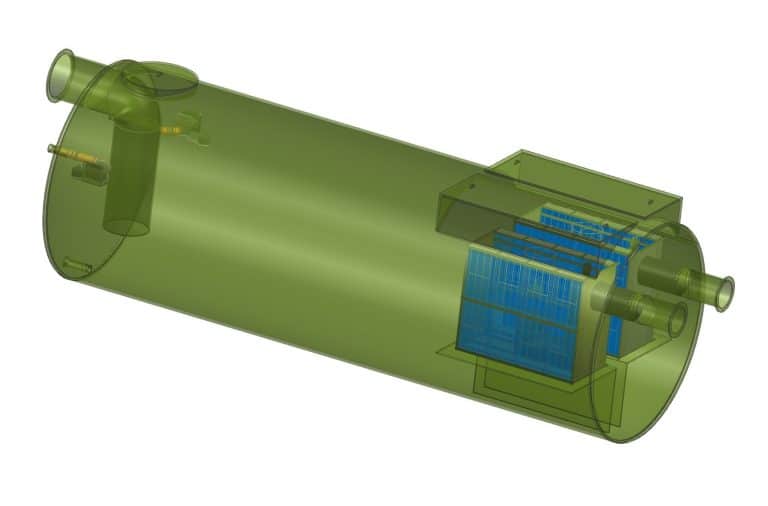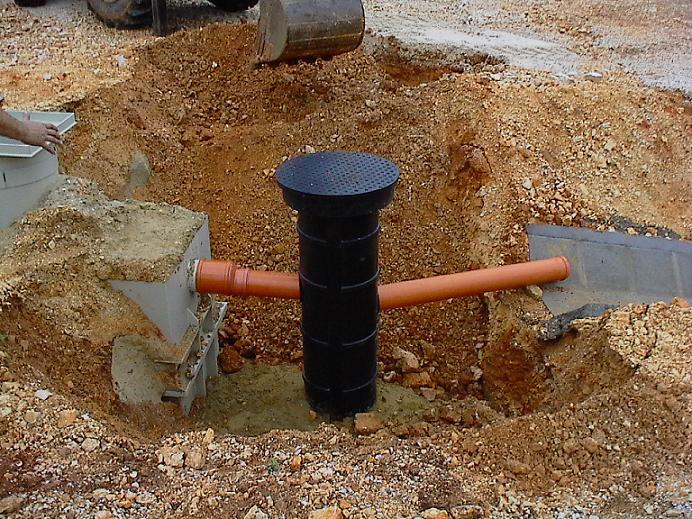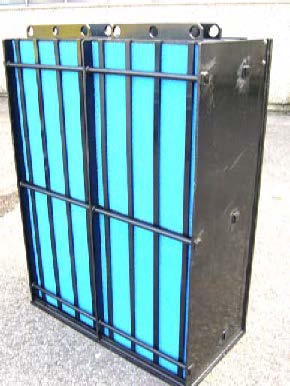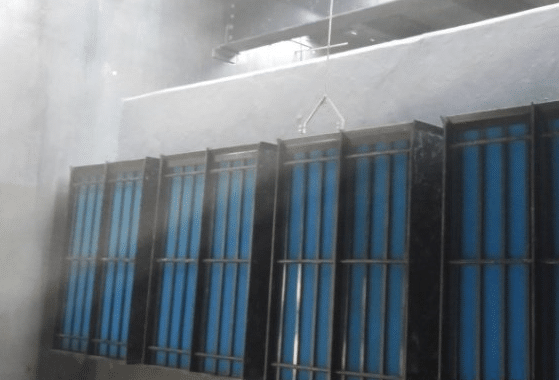Do you know about the hidden heroes protecting New Hampshire’s water? New Hampshire Below Ground Oil Water Separators are key to keeping our environment safe. They work hard under our feet, making sure businesses follow environmental rules and manage stormwater runoff well.
Freytech Inc. New Hampshire values the environment and uses underground oil/water separators widely. These devices separate petroleum from water, making clean water that meets state standards. They are made of fiberglass, which is strong, light, and won’t leak. This makes them a trusted choice for businesses facing discharge issues.
As environmental laws in New Hampshire get stricter, the need for good oil water separation grows. These systems help businesses follow the rules and protect the state’s ecosystems. They stop harmful substances from getting into water, keeping New Hampshire’s natural resources safe for the future.
Key Takeaways
- Below ground oil water separators are essential for environmental compliance in New Hampshire
- These systems effectively separate petroleum hydrocarbons from water
- Compact, lightweight design allows for easy installation and positioning
- Fiberglass shells ensure leak-proof operation and durability
- Separators help businesses meet strict effluent discharge standards
- Underground oil/water separators contribute to stormwater management efforts
- These systems play a crucial role in protecting New Hampshire’s waterways
Understanding Below Ground Oil Water Separators in New Hampshire
New Hampshire businesses must follow strict environmental rules. Below Ground Oil Water Separators are crucial for this. They manage stormwater and treat industrial wastewater.
What are Below Ground Oil Water Separators?
These devices are placed underground. They separate oil from water in industrial processes. The separators use special media to draw tiny oil droplets together. These droplets then form larger ones for easy removal.
Importance in New Hampshire’s Environmental Regulations
New Hampshire has strict rules for oil/water separators. These systems protect water resources. They keep oil out of groundwater and surface water. This helps businesses follow environmental laws.
Key Components and Functionality
The separators have a fiberglass shell and special coalescing media. An adjustable skimmer takes out the separated oil. They work for many things like compressor condensate, surface skimmings, and cooling water. They also clean up groundwater and industrial wastewater.
Stormwater management in New Hampshire often uses these separators. They remove oil from runoff before it gets into local waters. This keeps New Hampshire’s environment clean and healthy.
New Hampshire Below Ground Oil Water Separators: Regulations and Requirements
New Hampshire has strict rules for industrial wastewater treatment. Companies must use oil/water separators that pass certain tests. These rules help protect our water and manage water with oil in it.
In New Hampshire, oil/water separators have to meet tough standards. They need to remove oil so it’s almost gone, even from very oily water. This is key to following the state’s environmental laws.
These separators work with water that’s a bit heavier than regular water. They can treat a lot of water quickly, up to 1000 Imperial gallons per minute. It’s important they meet local and Canadian standards to be used in New Hampshire.
Following these rules helps businesses handle wastewater the right way in New Hampshire. This keeps our water clean and safe for the future.
Installation Process for Underground Oil/Water Separators in New Hampshire
Installing an oil/water separator in New Hampshire needs careful planning and execution. It involves several steps to make sure it works right and follows state rules.
Site Preparation and Excavation
The first step is site preparation. This means surveying the area, marking utility lines, and getting the needed permits. Then, excavation digs a hole big enough for the separator and for backfilling.
Proper Placement and Connection
Putting the separator in the right spot is key. It must be level and hooked up to the right pipes. New Hampshire’s rules say it has to be installed just right to work well and not leak.
Compliance with Local Codes
Following local codes is a must during installation. New Hampshire has rules about the size, materials, and where the separator goes. Experts who know these rules can make sure it’s done right and works great.
Oil/water separators in New Hampshire range from 2 to 25 GPM. They’re made to last, with a design that stops leaks and is made of materials that don’t rust. They’re also easy to put in and move if needed.
Maintenance and Upkeep of Below Ground Oil Water Separators
Keeping below ground oil water separators in New Hampshire in good shape is crucial. Regular maintenance makes sure these systems work well and follow local laws. For commercial oil/water separators in New Hampshire, regular care is key to a long life and top performance.
Important maintenance steps include changing pre-filters, cleaning the coalescer media, and checking the system. The design of the lift-off cover makes these tasks easy. The filter media in good separators can be taken out, cleaned, and used again, saving money over time.
New Hampshire businesses should plan regular maintenance for their oil/water separators. This helps avoid sudden breakdowns and keeps up with environmental rules. By focusing on maintenance, companies can dodge expensive repairs and avoid fines.
Looking after commercial oil/water separators in New Hampshire also helps protect groundwater. Well-kept systems keep oil and water apart, stopping harmful stuff from getting into the environment. This focus on maintenance supports both business goals and protecting the environment in the state.
Environmental Benefits and Groundwater Protection in New Hampshire
Below ground oil water separators are crucial for New Hampshire’s environment. They help protect groundwater and improve water quality.
Preventing Hydrocarbon Contamination
Oil water separators are vital for keeping New Hampshire’s groundwater safe. They stop oil and other harmful substances from getting into soil and water. This keeps drinking water clean and safe for everyone.
Supporting Stormwater Management
These separators are also key for managing stormwater in New Hampshire. They remove pollutants from rainwater before it reaches local waterways. This helps keep rivers, lakes, and coastal areas healthy across the state.
Contribution to Industrial Wastewater Treatment
In industrial settings, oil water separators are crucial for treating wastewater. They remove oils and grease from water, making sure it meets environmental standards. This protects wildlife and human health.
By using below ground oil water separators, businesses and communities in New Hampshire help protect the state’s natural resources. These devices support clean water efforts and keep New Hampshire beautiful for the future.
Freytech Inc.’s Advanced Oil Water Separator Technology
Freytech Inc. is at the forefront with its advanced oil water separator technology for New Hampshire businesses. Their systems meet the strict oil/water separator requirements in New Hampshire. They also deliver outstanding performance.
Enhanced Coalescing Technology
Freytech’s commercial oil/water separators in New Hampshire use advanced coalescing technology. This technology ensures cleaner discharge, meeting North American standards. The separation efficiency is an impressive 5 PPM, well below the 10 PPM limit.
Separation Efficiency and Discharge Limits
Freytech separators are great at removing even trace amounts of emulsified oil. They achieve a remarkable 0.1 PPM separation efficiency. This ensures compliance with New Hampshire’s strict environmental regulations.
Versatility in Hydrocarbon Separation
The versatility of Freytech’s systems is unmatched. They effectively separate various hydrocarbons, including motor oil, diesel, gasoline, and jet fuel. This makes them perfect for different industrial uses across New Hampshire.
For businesses looking for top oil water separation solutions, Freytech Inc. offers unmatched technology. Contact them at +1 (305) 372-1104 to learn more or request a quote for your specific needs.
These separators are crucial in storm water systems. They process runoff to meet the US EPA’s Clean Water Act standards. With effective oily water treatment, facilities protect the environment and dodge big fines.
Conclusion
New Hampshire Below Ground Oil Water Separators are crucial for following environmental laws and protecting nature. They help keep groundwater safe and manage stormwater runoff. Companies in New Hampshire use these separators to meet strict environmental rules.
Putting in and looking after these separators needs careful thought and regular checks. By using these systems, companies show they care about the environment. New technologies, like those from Freytech Inc., make these separators work better and handle different types of oil.
Choosing top-notch oil water separators helps New Hampshire businesses follow the rules and help the environment. As we worry more about the environment, the role of these systems in keeping New Hampshire beautiful and safe is very important.

